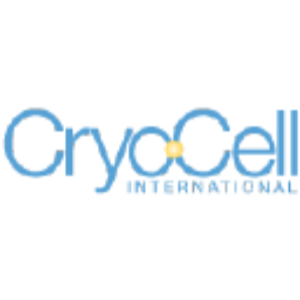Cryo-Cell Reports Financial Results for Fiscal Year Ended November 30, 2023
Financial Results
Revenue
Consolidated revenues for fiscal 2023 were
Net (Loss) Income
The Company reported a net loss of
Commentary
David Portnoy, Chairman of the Board and Co-CEO, commented, “In spite of the large non-cash charges, Cryo-Cell had another solid year in fiscal 2023. To provide more financial flexibility to fund future projects, we intend to transfer the assets related to the Duke University Patent and Technology License Agreement and certain other assets into a newly formed, wholly-owned subsidiary. Once such transfer is completed, we will explore spinning off this subsidiary to the Company’s shareholders.”
About Cryo-Cell International, Inc.
Founded in 1989, Cryo-Cell International, Inc. is the world’s first private cord blood bank. More than 500,000 parents from 87 countries have entrusted Cryo-Cell International with their baby’s cord blood and cord tissue stem cells. In addition to its private bank, Cryo-Cell International has a public banking program in partnership with Duke University. Cryo-Cell’s public bank has provided cord blood for more than 600 transplantations and operates cord blood donation sites across the
Cryo-Cell’s mission is to provide the premier cord blood and cord tissue cryopreservation services, to develop, manufacture and administer cellular therapies to significantly improve the lives of patients worldwide and to offer the highest quality and most cost effective biostorage solutions available. In February 2021, Cryo-Cell entered into a license agreement with Duke University that the Company believes has allowed Cryo-Cell to begin its transformation into an autonomous, vertically integrated cellular therapy company. In March 2022, Cryo-Cell launched ExtraVault to offer its expertise in biostorage and distribution to biopharmaceutical companies and healthcare institutions. For more information, please visit (www.extravault.com).
Forward-Looking Statements
This press release includes “forward-looking statements” within the meaning of Section 27A of the Securities Act of 1933, as amended (the “Securities Act”) and Section 21E of the Securities Exchange Act of 1934, as amended (the “Exchange Act”). In some cases, you can identify forward-looking statements by terminology such as “will,” “may,” “should,” “could,” “would,” “expects,” “plans,” “anticipates,” “believes,” “estimates,” “predicts,” “forecasts,” “potential” or “continue” or the negative of these terms or other comparable terminology. Generally, the words “anticipate,” “believe,” “continue,” “expect,” “intend,” “estimate,” “project,” “plan” and similar expressions identify forward-looking statements. In particular, statements about our expectations, beliefs, plans, objectives, assumptions or future events or performance contain forward-looking statements.
We have based these forward-looking statements on our current expectations, assumptions, estimates and projections. These forward-looking statements involve risks and uncertainties and reflect only our current views, expectations and assumptions with respect to future events and our future performance. If risks or uncertainties materialize or assumptions prove incorrect, actual results or events could differ materially from those expressed or implied by such forward-looking statements. Risks that could cause actual results to differ from those expressed or implied by the forward-looking statements we make include, among others, risks related to: the impact of the COVID-19 pandemic on our sales, operations and supply chain, the success of the Company’s global expansion initiatives and product diversification, including its addition of the ExtraVault services, the Company’s actual future ownership stake in future therapies emerging from its collaborative research partnerships, the success related to its IP portfolio, the Company’s future competitive position in stem cell innovation, future success of its core business and the competitive impact of public cord blood banking on the Company’s business, the success of the Company’s initiative to expand its core business units to include biopharmaceutical manufacturing and operating clinics, the uncertainty of profitability from its biopharmaceutical manufacturing and operating clinics, the Company’s ability to minimize future costs to the Company related to R&D initiatives and collaborations and the success of such initiatives and collaborations and the success and enforceability of the Company’s umbilical cord blood and cord tissue license agreements, together with the associated intellectual property and their ability to provide the Company with royalty fees, along with the Risk Factors set forth in the Company’s Form 10-K filed on February 28, 2024.
This list of risks and uncertainties, however, is only a summary of some of the most important factors and is not intended to be exhaustive. Given these risks and uncertainties, you are cautioned not to place undue reliance on such forward-looking statements. These risks and uncertainties may cause our actual future results to be materially different than those expressed in our forward-looking statements. These forward-looking statements are made only as of the date hereof. Except as otherwise required by applicable law, we do not undertake and expressly disclaim any obligation to update any such statements or to publicly announce the results of any revisions to any such statements to reflect future events or developments. All subsequent written and oral forward-looking statements attributable to us, or to persons acting on our behalf, are expressly qualified in their entirety by these cautionary statements.
View source version on businesswire.com: https://www.businesswire.com/news/home/20240228194119/en/
Irene Smith
813-749-2102
Ismith@cryo-cell.com
Source: Cryo-Cell International, Inc.







